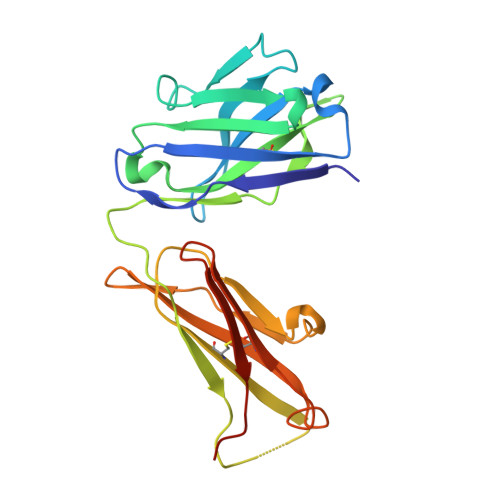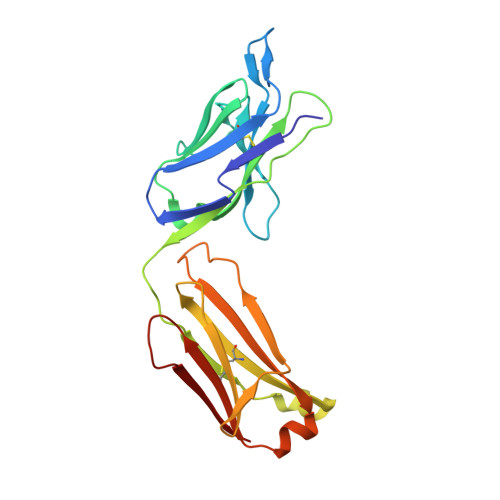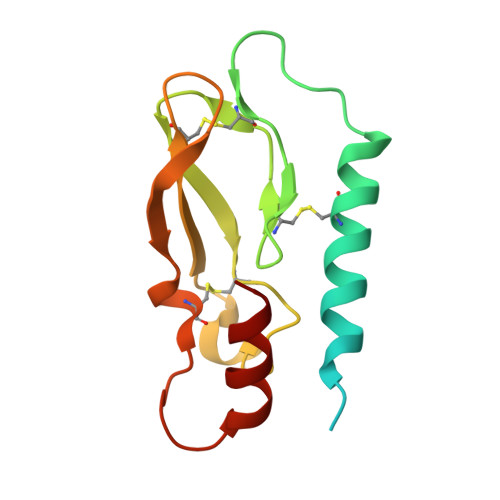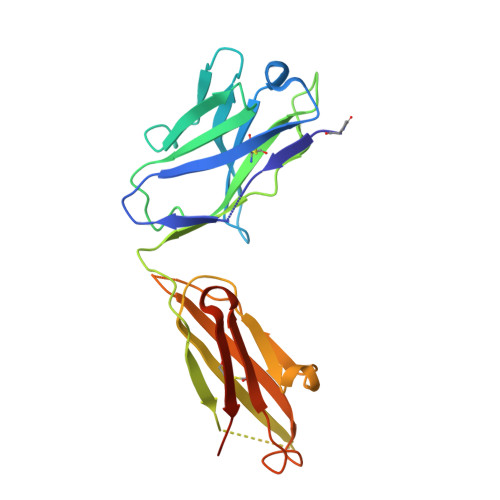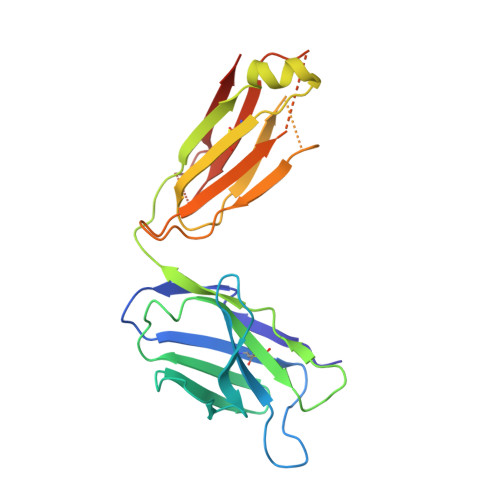Molecular mechanism of an antagonistic antibody against glucose-dependent insulinotropic polypeptide receptor.
Min, X., Yie, J., Wang, J., Chung, B.C., Huang, C.S., Xu, H., Yang, J., Deng, L., Lin, J., Chen, Q., Abbott, C.M., Gundel, C., Thibault, S.A., Meng, T., Bates, D.L., Lloyd, D.J., Veniant, M.M., Wang, Z.(2020) MAbs 12: 1710047-1710047
- PubMed: 31905038
- DOI: https://doi.org/10.1080/19420862.2019.1710047
- Primary Citation of Related Structures:
6O9H, 6O9I - PubMed Abstract:
Glucose-dependent insulinotropic polypeptide (GIP) is an incretin hormone involved in regulating glucose and lipid metabolism. GIP receptor (GIPR) antagonism is believed to offer therapeutic potential for various metabolic diseases. Pharmacological intervention of GIPR, however, has limited success due to lack of effective antagonistic reagents. Previously we reported the discovery of two mouse anti-murine GIPR monoclonal antibodies (mAbs) with distinctive properties in rodent models. Here, we report the detailed structural and biochemical characterization of these two antibodies, mAb1 and mAb2. In vitro and in vivo characterizations demonstrated mAb2 is a full GIPR antagonistic antibody and mAb1 is a non-neutralizing GIPR binder. To understand the molecular basis of these two antibodies, we determined the co-crystal structures of GIPR extracellular domain in complex with mAb1 and with mAb2 at resolutions of 2.1 and 2.6 Å, respectively. While the non-neutralizing mAb1 binds to GIPR without competing with the ligand peptide, mAb2 not only partially occludes the ligand peptide binding, but also recognizes the GIPR C-terminal stalk region in a helical conformation that acts as a molecular mimic of the ligand peptide and locks GIPR in a novel auto-inhibited state. Furthermore, administration of mAb2 in diet-induced obesity mice for 7 weeks leads to both reduction in body weight gain and improvement of metabolic profiles. In contrast, mAb1 has no effect on body weight or other metabolic improvement. Together, our studies reveal the unique molecular mechanism of action underlying the superior antagonistic activity of mAb2 and signify the promising therapeutic potential of effective GIPR antagonism for the treatment of metabolic disorders.
Organizational Affiliation:
Departments of Therapeutics Discovery, Amgen Research, South San Francisco, CA, USA.








